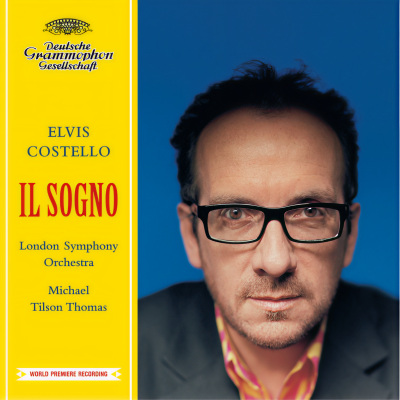
Elvis Costello: Il Sogno
by William Ruhlmann Elvis Costello has advantages over some of his peers in popular music in attempting to cross over to classical music, as he does with his first orchestral composition, Il Sogno. Since he learned musical notation and has orchestrated his music himself, he is better able to control the final work than his sometime songwriting partner Paul McCartney, for example. And by accepting a commission from the Italian dance company Aterballetto to score their adaptation of Shakespeare's A Midsummer Night's Dream (Il Sogno means "The Dream" in Italian), he has a work that gives him a dramatic structure and the further demand of accompanying dancers. These are useful limitations, and he has followed them strictly. His annotations on the play show that he has molded his music to the plot and characters, and even if the listener can't hear that in the score, there is a sense of form and development to the music. The ballet commission gives the work added functionality -- one is never too far from distinctly rhythmic material. But then, Costello brings from his popular music a sense of the need for music to command attention. Il Sogno is never a boring listen, something is always happening. A classical music fan, then, cannot criticize Costello for the usual reasons that pop composers venturing into classical music are criticized. But one criticism that can be made, from a conservative posture, is that, in achieving his effects, Costello is deliberately eclectic. He is not above borrowing a rhythmic idea from the pop song "On Broadway," as he does, for example, in "Oberon and Titania," and he has no problem introducing elements of swing jazz in "Puck 2," while leaving room for saxophonist John Harle to improvise. Also, he isn't always as restrained as he might be. A musical score for A Midsummer Night's Dream ought to be lighter and more playful than this one sometimes is; by the end, the music has taken on the contours of the soundtrack to a movie thriller, which is a bit more melodramatic than necessary. Nevertheless, Il Sogno is full of interesting themes and other musical ideas, along with striking contrasts of instruments, and it justifies both the commission and the London Symphony Orchestra's decision to record it.
